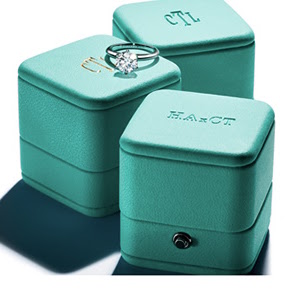
Tiffany & Co. did not receive any other “credible” bids during the month when LVMH engaged in a very public bidding process to acquire the retailer, according to the proxy statement it filed with the Securities and Exchange Commission on Wednesday.
During that period, the company’s financial advisers, Centerview and Goldman Sachs, reached out to four “potential alternative bidders…most likely to be interested in an acquisition.” All four said they were not interested in buying Tiffany at the levels it sought.
An unnamed “small asset management fund” did send an email to the company’s chief financial officer, Marc Erceg, about possibly acquiring the company, the statement said. However, its financial advisers felt the fund it would not likely have the resources to acquire Tiffany and decided not to pursue discussions.
On Oct. 29, a law firm contacted Goldman Sachs on behalf of a stockholder. This person said they “strongly supported maintaining the independence of the company and had capital to put toward that objective,” the filing said. However, Goldman Sachs didn’t consider the communication “relevant,” and “the stockholder [n]ever submitted a proposal to the company.”
The LVMH takeover started coming together after an Oct. 15 lunch that Tiffany chief executive officer Alessandro Bogliolo had with Antonio Belloni, group managing director with LVMH. Bogliolo had previously worked for Bulgari and Sephora, when those companies were owned by LVMH.
At the lunch—which “had been scheduled at Mr. Belloni’s request without advising Mr. Bogliolo of any agenda for discussion”—Belloni submitted a bid to acquire the company for $120 a share. At the time, Tiffany’s shares were trading at $91.
On Oct. 26, word of the bid leaked to the media. In a phone conversation, Belloni and Tiffany board chairman Roger Farah “discussed potential sources of the leak and mutually reiterated the importance of confidentiality.” Nevertheless, leaks persisted throughout the negotiation process.
After the first $120 bid was rejected, LVMH raised its offer to $125 on Nov. 6. It was then raised to $130 on Nov. 11 and finally to $135 on Nov. 22. The $135 bid was accepted after LVMH said it was unwilling to go higher.
Tiffany director Francesco Trapani, the former Bulgari CEO and LVMH executive who owns 5% of the company with Jana Partners, was recused from the discussions, the statement said. Bogliolo was deemed not to have a conflict of interest despite his past association with LVMH.
In naming their reasons for the deal, the Tiffany board cited the following: Its “common stock has traded on average at a discount to the trading multiples of other single-brand luxury peer companies”; the “challenges of operating as a public company” that requires long-term investment; management “did not project meaningful improvement in the company’s results until 2021”; the “macroeconomic factors” affecting the global luxury market, including possible issues with the U.S. and Chinese economies; and “the risks and uncertainties relating to the competition in the global jewelry industry, including the increased competition for engagement jewelry sales, competition from the lab-grown diamond market, and competition from luxury fashion brands expanding into jewelry.”
Potential factors weighing against the sale include the company’s stock trading of $139.50 on July 25, 2018, which is higher than LVMH’s offer; Tiffany is “an iconic and unique luxury brand that has 90% or greater global brand awareness, and in recent years has significantly improved its brand strength in China”; and Tiffany will have to pay LVMH $575 million if the deal is not consummated.
(Image courtesy of Tiffany & Co.)
- Subscribe to the JCK News Daily
- Subscribe to the JCK Special Report
- Follow JCK on Instagram: @jckmagazine
- Follow JCK on X: @jckmagazine
- Follow JCK on Facebook: @jckmagazine